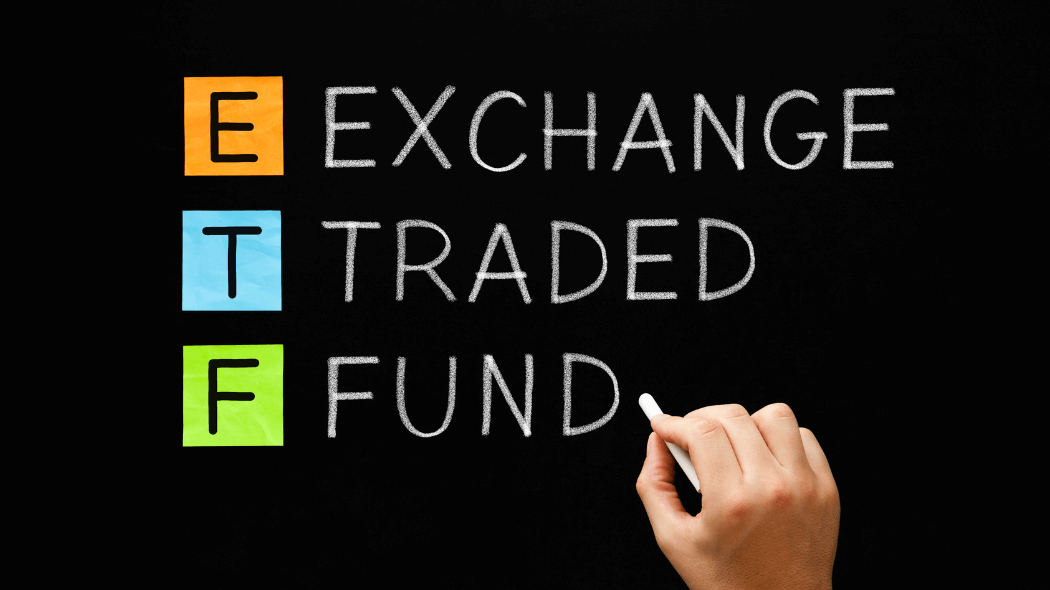
The Exchange Traded Funds are a type of mutual fund with stock-like trading benefits. ETFs follow a benchmark index such as Nifty 50 or Sensex to invest and match the returns.
The returns on these funds change as per the changes in the underlying index. These funds offer the best of both mutual funds and stocks.
ETFs are nearly similar to Index mutual funds. The only difference is, ETFs are traded in the market and you can access these funds in your Demat account.
According to SEBI guidelines, fund houses allocate at least 95% of total assets into securities listed on the underlying index.
The investment strategy may change based on the type of ETF.
Index ETF- Follows a benchmark index (Nifty 50 or Sensex) to reflect similar returns.
Gold ETF- Investment in Gold without owning physical gold.
Fixed Income ETF- Invest in fixed-income securities listed on the fixed-income indices. For example- Nifty 1D TRI, Nifty 8-13 years.
Sector ETF- Follow specific sector indices to invest and reflect similar returns. For example- Nifty PSU bank, and Nifty Private bank.
International ETF- Invest in international indices such as NASDAQ 100.
ETF offers diversification via buckets of various investment securities across different sectors and market segments.
Anything that can be traded on the market and has flexible liquidity can be a part of ETF.
You can even opt for international ETFs to explore foreign financial instruments. Instead of investing in a single stock, trading multiple securities via ETF can offer better returns.
Even though traded on the market, ETFs are passive funds. ETFs have a lower expense ratio than actively managed funds and other passive investment instruments.
It enables you to have low-cost investments with decent returns.
The Exchange traded funds allow you to trade the whole bucket of funds on the market. The unit prices of underlying securities go up and down throughout the day over the market.
As these funds are in your Demat account, you can quickly buy/sell more units at your preferred price. There is no lock-in period for the ETF.
Fund houses disclose the holding portfolio of ETFs to the investors on daily basis. Some ETFs send monthly or quarterly holding reports.
And as these funds follow the specific benchmark index, all the underlying assets and corresponding holdings are known to the investors.
First thing first, before investing in ETF or any mutual funds, analyze your portfolio. Plan your investment based on your risk profile and investment goals. If your profile still has a scope to diversify, ETF can become a part of your investments.
The Exchange traded funds follow the benchmark index and are traded on the market. Here, you have the risk of market volatility.
If the index drops down, your returns will also drop down. Vice versa is possible too, so you may have the opportunity to bag superior returns.
Some ETFs may have complex investment securities, which could be difficult to keep track of. Make sure you understand all the features of the selected fund. You can always seek help from wealth advisors.
There are different types of ETFs available for investors to choose from. Gold ETF, sectoral ETF, and even International ETFs.
We would recommend understanding what index benchmark would benefit your portfolio the most. You have the option to follow a generalized underlying index or an industry-specific index to invest in these funds.
Tracking error is the standard deviation of the difference between the returns on ETF and returns on the underlying index.
If the tracking error is positive, that means the funds have outperformed the underlying index. If it’s negative, that means you will gain fewer returns on funds compared to the underlying index.
Knowing this, you may want to consider funds with lower tracking errors.
Index ETFs and Gold/International ETFs have different taxation structures.
Index ETF Taxation- Index ETFs are considered equity-based investments. The tax on capital gains will be similar to equity mutual funds.
Gold/International ETF Taxation-
ETFs are not meant for new investors. Since these funds contain different types of financial instruments, it could be quite complex to understand them. Instead, new investors can go with Index funds.
Investors who have been investing in the stock market for years can consider ETFs for diversity and the ability to trade. These funds offer high liquidity with no lock-in period. ETFs are also suitable for investors who are interested in International securities.
Funds that follow a benchmark to reflect returns are fairly transparent and moderately safe. Investors who want to have mutual fund security with trading benefits can go with ETF.
You can access ETF investment through your Demat account and buy/sell at your convenience. This opportunity opens up high liquidity and a flexible investment horizon.
New investors can consider ETFs with generalized indices. Otherwise, there are ETFs that follow sector-specific indices.
For investors who don’t want trading features, there are always index funds.
Planning your next mutual fund investment? We, at VNN Wealth, offer portfolio analysis along with a suitable investment plan. Get in touch with us to explore various investment avenues.
Find more mutual fund insights here.

